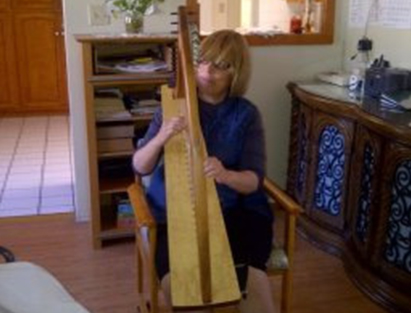10 Things You’re Doing that Drive Your New Daughter-in-law Crazy….and How to Fix Them


I originally wrote this post for my website page that offers help exclusively for mothers-in-law on how to cope. I launched that page in 2013 and this was my first broadcast I sent out.
Well, I’ve come a long way since then. Many people have corresponded with me through that site with questions on how to cope. I have tried to answer their queries to the best of my abilities based on my own and on others’ experiences shared with me. However, I sometimes wonder whether I have fallen behind in some of these skills. Having had several more sons get married thank G-d, increasing my number of daughters-in-law to four (and counting!), I’ve had some tricky scenarios occur in our family(and no, I will not share them in this post!). I can picture my daughters-in-law reading this and thinking, “Hmmm…” Yes, confession: I have broken these rules (from time to time!).
Rereading my own tips leads to me realizing I need a tune-up and some studying of my own rules.
So in hopes of increasing my own commitment to these guidelines and possibly helping others in the process, I’ve decided to rewrite and slightly revise them with updated 2016 situations such as text and what’s-app and Facebook. So, without further ado, here they are:
10 Things That Drive Your DIL crazy….and how to fix them
1. You call your daughter-in-law too much. The rule of newlyweds is “don’t call – let them call you.” By your calling them, you may be pressuring them to talk when they may be busy with something else.
How to fix:
a) Tell your new couple that for the first few months, you are available if they need you – and mean it. Make a commitment to them never to call them in the beginning. When I was a new mother-in-law, I remember picking up the phone…and putting it down. It took all my inner strength to refrain from calling.
b) If they call you, return their call within a reasonable period of time, and help them out if you can. This will build trust as they realize you are there for them, while not hovering over them. Better to let them find a time that works for them and call you, rather than put them on the spot. This applies to leaving messages too.
c) You may text or “what’s-app” them but do so with just information that you are giving them about something upcoming in the family, rather than with expectations of them to respond.
2. You compare your own family members to your daughter-in-law and/or her family. Okay, you’re proud of your own family and biological children. Fine. But, by comparing openly or talking about another person too much, you may be giving the unwitting impression that you don’t value your new daughter-in-law as an individual.
How to fix:
a) When you are with your dil, don’t share or brag about your own family. At least in the beginning few months, be a listener, more than a talker and sharer.
b) As a side note, this comparison factor may come into play when the various couples start to have children. It’s best to listen to your individual daughters-in-law share and discuss about their children, without interjecting comparisons about another of your daughter-in-law’s children.
3. You ask open-ended questions such as what she is making for dinner, or how she spends her time. To you that may be a matter of conversation, but to her it is personal and perhaps not something of interest to her. Starting conversations with a question can only lead to defensiveness, or feeling pressured into sharing.
How to fix:
a) Avoid appearing curious and asking too many personal questions.
b) Allow the relationship to build through your sharing with her and then letting her share spontaneously.
4. You give her advice that she does not ask for, or you give your son advice about something that pertains to both or one of them. When your children get married, they are under new management. They are adults in charge of their own life. By you offering advice, you are demonstrating that you still see them as children. They should know that you are there for them (as much as you can) when they ask. But never ever offer unsolicited advice. Whether it’s about housekeeping, finances, child-raising, health. Anything.
How to fix:
a) No advice at all. Only if they ask. And even then, reflect back to them by saying, “So what are your options? How do you want to handle it?”
b) Now, it’s okay to say, “if you need any help, feel free to ask” to them or to offer your opinion – ONE time, but then you need to drop it. Try never to bring it up again.
5. You criticize and find fault with her. This will drive her crazy and will drive a wedge between you and her. If you see your son or daughter-in-law doing things “wrong” in your eyes, keep you mouth shut. Do not criticize her. Ever. Let’s say she makes bagels and cream cheese for dinner five days a week (maybe an extreme example). Don’t say anything about it. Don’t offer advice on other nutritional offerings (see rule #4). And don’t tell her how unhealthy an unbalanced it is to serve such dinners. Just let it be. Whatever she does or is, is not your business.
How to fix:
a) If you notice that you are criticizing too much, stop.
b) Apologize if she or they were hurt and resolve to never find fault.
c) Realize they are a married couple and if you want them to be happy, then finding fault with either one of them is not going to create good feelings or happiness between you.
d) Maybe find a friend or mentor to share and vent with about your thoughts. Try to find solutions within yourself to reframe situations so that you don’t appear critical.
6. You rarely praise your couple and/or daughter-in-law. Not only is it important to avoid criticizing (rule 5), but you must find ways to praise them sincerely. A mother-in-law who rarely finds good in her daughter-in-law is at best going to have a stilted relationship. You can offer the praise to your son about her, some of the time. It doesn’t have to be always to her, but still she must know that you approve of her. If you don’t approve in some areas, find other areas that you do approve and make sure she knows.
How to fix:
a) Make a list of things that you appreciate about them and try to remember to point out every now and then when you truly admire something they did.
b) Be grateful in your heart for their good qualities and make mention of them from time to time.
7. You pop into their home without calling first. I don’t think I have ever popped into my married couple’s apartment without calling(or texting, emailing or calling) first. Even if you have something you want to bring them or give them, never just show up.
How to fix:
a) Always call to ask if you can come before even considering coming to them.
b) If you have something you want to give them, leave it in a special place in your home and mention to them that the next time they are over they can come get it.
8. You follow up on issues or events that they confide in you about. Let’s say your children share with you such as a visit to the doctor, or a challenge they’ve had with something. While it’s okay to follow up afterward with friends in such a situation and say “hey, how did that go…” – with daughters-in-law and especially newly married couples, it’s best not to keep tabs on their private lives. They shared. Fine. Let it go. Maybe in a few weeks or months, you can say “by the way what happened with that?” But in the meantime, don’t go there. What you view as concern, they may view as intrusiveness.
How to fix:
a) Try not to obsess about things they share with you. Unless it’s an ongoing thing that they may need support with, just put the details of their life out of your mind.
b) In your daily prayers, offer a thought or beckoning for help in whatever area they (or you) may be struggling.
c) Keep busy in your own life and you will resist the urge to follow uop.
9. You remind them about invitations and obligations. This can be a biggie. You know, thank you cards after the wedding or after a baby is born. Right? You have the urge to remind them of keeping to the family tradition of good manners. Right? Or here’s another one: Let’s say there’s a wedding in the family. Everyone has received an invitation that you know of. It’s probably best not to prompt the new couple and say, “don’t forget we have that wedding….” Or even worse, “Um…please be on time to the wedding…” This will drive them up a wall. They may have their own plans or agenda for that day and it’s between them and the hosts whether they come. You can ask casually if you will see them there. But to actually prompt them and remind them as if they are children is not appropriate.
How to fix:
a) Realize that their behaviors are not a reflection of you. They are their own entity now and their coming or not coming to an event on time (or at all) should have no bearing on you and don’t be involved.
10. You insist that they come visit. It’s perfectly okay and wonderful to invite your married children for a weekend or ask them to come over for the afternoon on a Sunday or evening. But when inviting becomes insisting, you are instilling pressure and having expectations.
How to fix:
a) When they do come to visit you, make your home a pleasant and fun place to hang out. They will be more likely to come by more often.
Conclusion:
Remember that the more we mix in and the more expectations we have, the more we are setting ourselves up for disappointment. All of the above missteps are okay once in awhile.
We are all human and perfection is not the goal. I have made many of the above mistakes and learned from them in the process. Just be aware and be careful, and if you make a mistake, discuss it and move on. And yes, fix it using the tips for fixing above. That’s what it’s all about – improving and repairing our relationships that need it.
Copyright 2013 by Miriam Hendeles
Original Source: http://bubbyjoysandoys.com/miriam-hendeles-2 or http://miriamhendeles.com
Email: Miriamhendeles@gmail.com





















I only have sons-in-law, but the same rules apply. Thanks for the reminder!!!
Oh my! Thanks —some tell me that with sons-in-law it’s completely different and others say it’s the same. I write about daughters-in-law because that’s what I know best.
I think #8 is the one mother-in-laws break the most often. There is a tendency to never leave it alone. I, for one, fight this all the time and my children have been married for 25 years. Sigh!
Absolutely! #8 is hard for me as well. I have to remind myself all the time about it. Thanks for the comment, Barbara